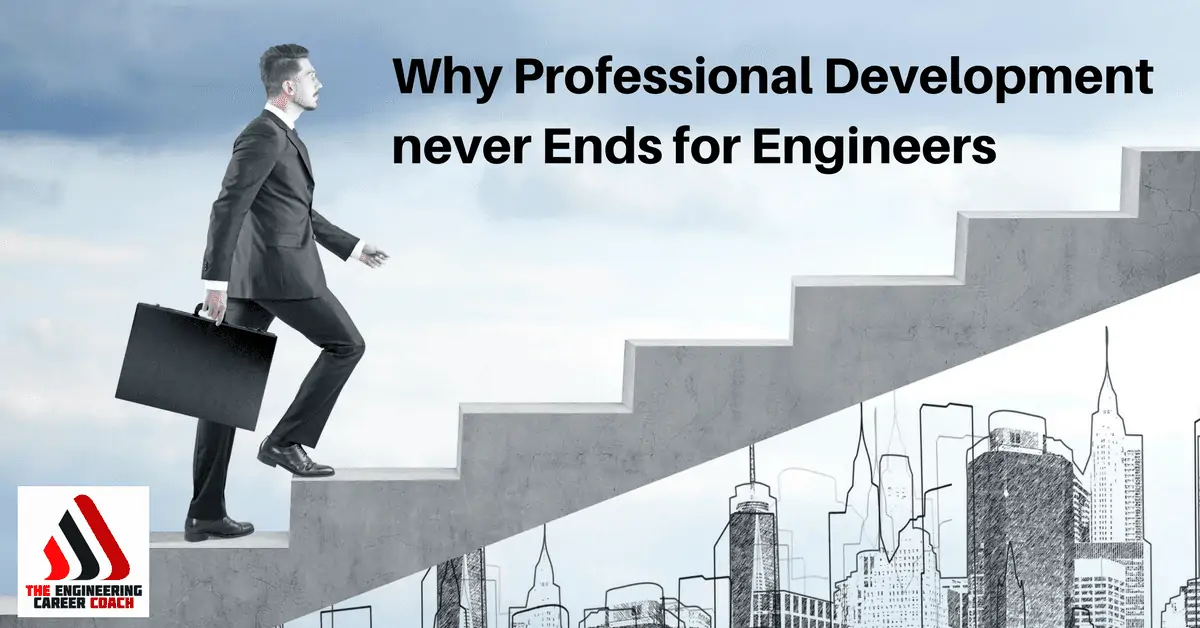This is a guest post by Patrick Sweet, P.Eng.

Thankfully, the seminar was well received. The feedback I got after the talk was very positive. As is often the case, however, one negative comment out of all the good ones stuck with me. One of the participants suggested that the session on professional development really didn’t apply to experienced engineers.
As much as it can be disheartening to receive negative feedback, what really bugged me about this comment was that this particular participant either didn’t buy into my main message for that session or didn’t understand it. My message for professional development is simple: professional development should be part of every engineer’s career from start to finish, regardless of your level of experience.
Why should experienced engineers care about professional development?
It’s easy to see how junior engineers can benefit from continuing education. When you’re fresh out of school, there’s still a substantial gap between what you know and what you need to know in order to practice engineering. You can’t will yourself to have more experience than you do, so taking courses, reading books, and attending conferences are great ways to bridge the gap.
But what about for more experienced engineers? I believe that even senior engineers can benefit from continuing their education. Every industry is in a constant state of change. New technologies emerge as a matter of routine. New software and tools enter the market on a daily basis. New regulations, standards, and best practices are being written in every discipline. Without making an effort to stay on top of all this, it would be very easy for even an experienced engineer to lose touch with their profession.
Imagine, for a moment, that we were to ask the same question of surgeons. Would you rather have a surgeon who knew the latest technology, tools, and techniques, or would you be satisfied with experience alone? Most people, I believe, would choose the surgeon who had continued their education throughout his or her career. They would be safer, more efficient, and their procedures would have a higher likelihood of success. The answer is so obvious that the question is hardly worth asking. I think the same logic applies equally to engineers.
Next steps
Professional development is a never-ending quest. In order to be at the top of your profession, to be as effective and efficient as possible, and to truly succeed as an engineer, you cannot treat your education as a distinct phase in your career. It needs to continue and grow with you as your career progresses.
I challenge you to find a way to continue your education today – even if it’s as simple as buying a book. There is likely nothing quite as important or as satisfying as the growth of the mind. Besides that, your engineering career depends on it.
About Patrick Sweet
Patrick Sweet, P.Eng., MBA is a product and engineering management consultant, speaker, and the creator of EngineeringAndLeadership.com. He helps engineering teams and OEMs create profitable products, boost productivity, and manage complexity. You can reach Patrick at [email protected] or @engileader.
Please leave your comments, feedback or questions in the section below on why professional development should never end for engineers.
To your success,
Anthony Fasano, PE, LEED AP
Engineering Management Institute
Author of Engineer Your Own Success




